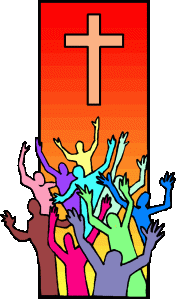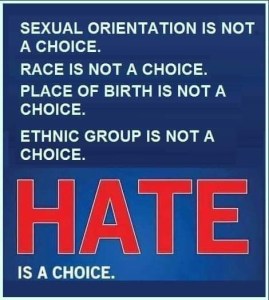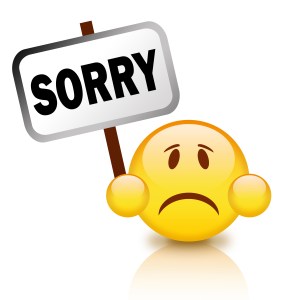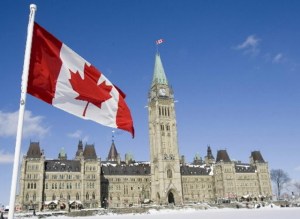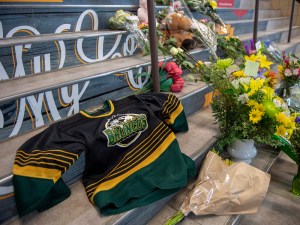
In early June, News from Kamloops shook Canada when the remains of 215 children on a former residential school site in Kamloops, British Columbia (BC) were found. A week later, 751 unmarked graves at a former Saskatchewan residential school were located. The Marieval Indian Residential School site was operated by the Roman Catholic Church from 1899 to 1997 (source BBC). On June 30th, once again, First Nations in Cranbrook, BC reported 182 unmarked gravesites discovered near the location of a former residential school site close to the former St. Eugene’s Mission School (source CBC). I’m sure there will be more remains discovered.
Like most Canadians, I (#blogger #blog #somseason #YA #authors) was outraged by this news, since these deaths resulted from bullying (#bullying #antibullying) by the governments of the day and Christian churches who ran the schools, half of which were Catholic Churches. However, I was surprised by the level of anger. It seems that Canadians either forgot about the revelations from the Truth and Reconciliation Commission or didn’t pay much attention to it. In the Final Report of the Truth and Reconciliation Commission of Canada, in a document titled, Canada’s Residential Schools: Missing Children and Unmarked Burials, it was recommended that a study be done to identify the location of cemeteries and gravesites in which students were believed to be buried. The project was to collaborate with communities to identify options for commemoration, ceremony, and further community-based research. In 2009, the Commission requested the government cover the cost of this research, but the request was denied. I have to wonder, was the Canadian government trying to cover this up? The Commission revealed that there were many children buried in unmarked graves on former residential school sites.
Since the discovery of over 1000 unmarked graves, church vandalism in Canada has exploded and “suspicious” burnings of Christian (mostly Catholic) churches became widespread. The US is experiencing similar events (see Catholic churches have been torched and vandalized in the US). From June 21 through June 26, four Catholic churches located on tribal lands in British Columbia burned to the ground. Nova Scotia RCMP report suspicious fire at Catholic church in First Nations community. An Anglican church burned on June 26, but was extinguished with minor damage. In the province of Alberta, a fire was extinguished in the early morning hours of June 28 at the Siksika Nation Catholic Church. One June 30th, Alberta woke up to the headline, Century-old Catholic church in Morinville, Alta., destroyed by fire, a church I visited years ago. These fires appear to be intentionally set, and these attacks on churches continue. These attacks are hate-crimes directed towards the Christian community, and some even argue this is a war on Christianity (see Rebel News). I have to wonder why it took Canada’s prime minister 11 days to condemn attacks on christian churches (see Trudeau denounces church burnings, vandalism in Canada) when the October defacing of the mosque in Cold Lake, Alberta, provoked Trudeau to denounce it the next day.
 Since the discovery of unmarked graves, a debate brewed in June over whether to hold Canada Day celebrations. According to the article, Cancel Canada Day: ‘Nothing to celebrate’ amid unmarked graves, many Indigenous community leaders and advocates have promoted the cancelation of celebrations, instead, asking for the day to be one to reflect on the real history of Canada and to support Indigenous people. Many communities across Canada have heeded to that call (see Timeline).
Since the discovery of unmarked graves, a debate brewed in June over whether to hold Canada Day celebrations. According to the article, Cancel Canada Day: ‘Nothing to celebrate’ amid unmarked graves, many Indigenous community leaders and advocates have promoted the cancelation of celebrations, instead, asking for the day to be one to reflect on the real history of Canada and to support Indigenous people. Many communities across Canada have heeded to that call (see Timeline).
Another debate also erupted: What should Canada do about the statues that regard the very men who started the schools where these children died? Many institutions and local governments are acting to remove statues of Canada’s first prime minister, and other politicians, plus renaming streets and schools of those directly connected to Canada’s residential school program. Statues, including Religious statues, in Canada are being vandalized like the Six religious statues beheaded at Grotto of Our Lady of Lourdes, in Sudbury, Ontario. Vandalization of Catholic churches is rampant with at least 10 Calgary churches defaced with red paint on Canada Day. Not all Indigenous leaders agree with what’s occurring since some Indigenous chiefs and leaders decry church burnings and vandalism.
The level of reaction to discoveries on former residential school sites is unprecedented. Don’t get me wrong, the reaction should be strong. It’s a collective call for justice, and a call for all Canadians to be united with Canada’s First Nations people. The question is: Does justice mean burning churches, removing statues, vandalizing, and dumping Canada’s national day?
Sheila North, the former Grand Chief of Manitoba Keewatinowi Okimakanak (MKO) says;
“These things are perpetuating the racism and perpetuating the hatred towards Indigenous people without even realizing.”
I have to agree! The ways Canadians are directing their anger is only keeping division alive. Such activities do nothing to further reconciliation. They are actions of revenge which divide us by perpetuating hatred towards Indigenous people, catholics, or some other group.
Not everyone thinks residential schools were bad. An Indigenous person once told me that she felt she benefited from residential schools. There are even some who believe residential schools were a good thing as a Priest under fire after sermon on the ‘good done’ by Catholic Church on residential schools. Personally, I fail to see how any good can come from government-sponsored religious schools established to assimilate Indigenous children into Euro-Canadian culture. How can any good come from an estimated 150,000 First Nation, Inuit, and Métis children who were isolated from their culture, and who suffered abuses in the form of excessive physical abuse and sexual predation?
 I understand the anger. I stand with the First Nations people and it saddens me the way our European ancestors treated them. There needs to be justice and reconciliation. However, Cancelling Culture—the phenomenon of “canceling” people, brands, shows, and movies due to problematic or offensive remarks, ideologies, and branding—is not the answer. In the article, What is the Cancel Culture Movement, it says:
I understand the anger. I stand with the First Nations people and it saddens me the way our European ancestors treated them. There needs to be justice and reconciliation. However, Cancelling Culture—the phenomenon of “canceling” people, brands, shows, and movies due to problematic or offensive remarks, ideologies, and branding—is not the answer. In the article, What is the Cancel Culture Movement, it says:
One of the biggest problems with cancel culture is that people are quick to cancel, but never so quick to forgive…It ignores the idea that people can pay for their mistakes, and insists that we should all be perfect beings who have never – and will never – make a mistake. The problem is that humans aren’t infallible. Who hasn’t made a mistake in the past?
Our history should never be cancelled, instead, it needs to be studied so mistakes of the past are never repeated. We need to forgive past leaders for the damage their decisions caused, and right those wrongs. Statues should not be torn down, but serve as reminders of people who made mistakes. To cancel history doesn’t mean it didn’t happen.
Cambridge Dictionary defines justice as “fairness in the way people are dealt with.” Most Canadians and Americans would agree Indigenous people were treated unfairly. Canada’s prime minister is calling on the Pope to apologize for the Catholic Church’s role in residential schools, and is urging Canadian Catholics to demand action from their church. Churches should take responsibility, but why isn’t our government taking responsibility, since all residential schools were mandated by them? Did the PM forget that Pierre Trudeau, his father, was Prime Minister (PM) of Canada from 1968 to 1979, and during that time, the maintenance of residential schools were run by his government?
Yes, the Catholic church and governments need to apologize, but NOT just words. Apologies require actions to correct the wrongs done to survivors. PM Justin Trudeau promised to end all long-term boil-water advisories within five years during his 2015 campaign. If the PM really felt First Nations people were wronged, then he would keep that promise. Instead, Indigenous Services minister says Trudeau government won’t end boil-water advisories by March 2021. Actions speak louder than words Mr. PM.
Adam Soos from Rebel News says:
Reconciliation is a vital conversation that we must have, but please, for the sake of any progress that we have made on the path towards reconciliation, do not associate these hate crimes with progress or justice for the tragedies of our history. This is not justice. This is just the start of another dark chapter in Canadian history.
I couldn’t agree more. This must be a time to unite with our Indigenous people, to reconcile with our history, and to start acting as one people. Mahatma Gandhi says, “Relationships are based on four principles: respect, understanding, acceptance and appreciation.” It is time to respect and understand First Nations people, their culture, and what they endured. It is time to accept them as equals, and appreciate Indigenous people for who they are. Let’s stop this nonsense that Canadians are inherently racist as Critical Race Theory would have us believe. This theory reasons that racism is systemic, is inherent in much of the American or Canadian way of life, and paints “white” people as racist. Racism is learned, and is designed to divide us. As I said in Does Media Mirror Culture, or Create Culture? “We humans are innately good, naturally cooperative, and instinctively altruistic.” It is time to start being who we truly are.

